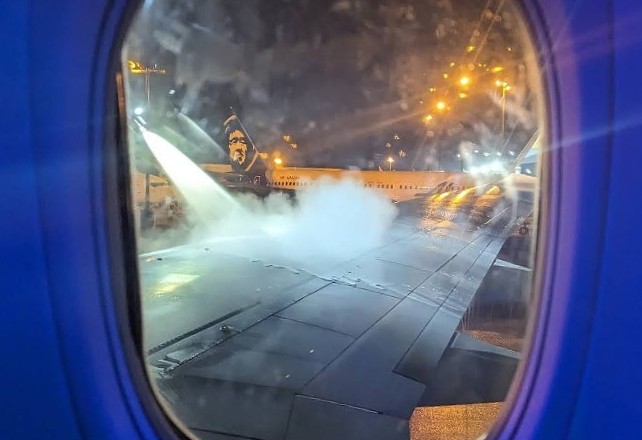
According to the New York Times, 2017 was the most costly year for natural disasters on record. The National Oceanographic and Atmospheric Administration estimates that damage from the hurricanes, fires, hailstones, and more totaled $306 billion. Much of that stunning bill can be attributed to climate change, which is real and is only going to get worse because there are no political mechanisms operating outside of the powerful influence of an economic system that functions to diminish market competition and concentrate wealth in a few individuals and corporations. A good part of that wealth is tied to fossil fuels.
But will more climate change-related destruction ultimately result in a new economic system? Will the mounting costs of extreme weather events finally present the current political economy with a limit it can't overcome or sublate without being radically transformed? Before digging into this big question, I want to briefly discuss my mode and manner of composing a blog post.
For me, composing a longform piece is something like composing a score or soundtrack. I spend more time mentally constructing the work than I do writing it. This mental effort involves no words at all but the careful conceptual arrangement of an assemble of key themes and theories. Once these are fixed in the mind, the process of finding words that fit with the design commences. However, the last draft of this writing process, which is initially stimulated by coffee, locates sentences that are little too stiff and, with the inspiration of wine, replaces them with ones that are a little slippery.
A blog post, on the other hand, is much more like a jazz improvisation. What first happens is that a theme is discerned in some experience (such as the seemingly empty million-dollar house on my Columbia City street that's rat infested—rats that might be the beneficiaries of global surplus capital), or some reported event or story (such as the growing costs of climate change). This theme is then played, but not freely—I do not care for free jazz—but within a frame of concepts that have been shaped over the years by a number of books or theorists. I may play with Michel Foucault, or Capital in the Twenty-First Century, or with Paul Sweezy, or with Spinoza, or the Jena sections of The Young Hegel, or with Joan Robinson, or The Limits of Capital, or Stuart Hall, or The Arcades Project, or James Joyce, or Dambudzo Marechera. True, I do not know how the post will end, as it's composed moment-by-moment and stops only when the music stops. But nothing in these extemporaneous moments comes out of thin air.
In Bill Evans's liner notes for Miles Davis's Kind of Blue, jazz improvisation is compared to a "Japanese visual art in which the artist is forced to be spontaneous" by drawing on a parchment that's so stretched that if the brush stops it breaks right through it. The artist can't pause. Can't hesitate. She/he must keep the brush moving. Evans: "As the painter needs his framework of parchment, the improvising musical group needs its framework in time." In many ways, this is how I approach a blog post on Slog.
Now, back to the climate change thing.
Will it cause long-term structural change? Not the catastrophe of global warming itself, but the point at which the scale of human misery resulting from rising sea levels and non-stop violent weather threatens the power of the state (capitalism's apparatus). As the Japanese philosopher Kōjin Karatani explains in The Structure of World History, the state has a very different and much deeper origin from capitalism, and the latter could not exist without former. As a consequence, mass misery in the age of climate change will inevitably force the state to break with capitalism. The state will recognize the real danger of the increasing misery and, for its own survival, be forced to ignore the commands of capital. Something like this happened during the Great Depression.
Despite the unprecedented size of the human misery the near-complete collapse of the American economy caused, the owners of capital commanded the leader of the United States, then Herbert Hoover, to "liquidate labor, liquidate stocks, liquidate farmers, liquidate real estate." In short, bring more misery to the masses. Out fear, the state let go of Hoover and replaced him with someone, Franklin D. Roosevelt, who was little more deaf to capital. Capitalism did not save capitalism from this crisis. The socialist New Deal did.
But if the climate-related misery is containable, its physical destruction will be a boon to capital for a reason that's explained by a French economist who is virtually unknown in the English-speaking world: Paul Boccara. He wrote Études sur le capitalisme monopoliste d'État, and the basic idea in this work is that one of the important functions of the state is actually to remove massive amounts of fixed capital from the economy. For example, a state-funded road or expressway makes no money and so doesn't compete with private enterprises for profits. But if the state was like a corporation and expected profits from expressways or bridges or parking spaces, it would absorb large amounts of profits in the market. What all of this means is that capitalism needs the removal or displacement or destruction of, specifically, fixed capital to protect, insure, and increase its profits. And so, it's not the increased costs of climate change that's a problem for capital. It's the human misery caused by its destructive weather that's a problem for the state.















